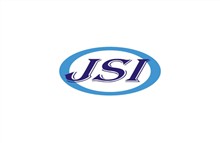
Aurora A Kinase Inhibitor, VIC-1911
VIC-1911 is a novel, selective, and orally active inhibitor of Aurora A kinase, a key regulator in mitotic cell division. Aurora A is associated with the spindle assembly checkpoint and the regulation of the transition from G2 to M phase, and its overexpression associated with poor disease progression and survival in a wide variety of cancers. Therefore VIC-1911 could be a fundamental and transformative anticancer drug.
Two Phase-1 clinical studies were conducted to assess safety and tolerability, and to determine the maximum-tolerated dose (MTD), recommended phase 2 dose (RP2D), pharmacokinetics (PK), pharmacodynamics (PD) and preliminary antitumor activity of VIC-1911. Now the global development of VIC-1911 has begun with new translational and regulatory strategies.
ERK Kinase Inhibitor, JSI-1187
JSI-1187 is a selective and orally active small molecule inhibitor of extracellular signal-regulated kinase 1/2 (ERK). ERK controls the output of the MAPK (RAS-RAF-MEK-ERK) pathway by phosphorylating and activating several downstream cytoplasmic and nuclear targets, which promote cell-cycle regulation and negative feedback mechanisms. The MAPK pathway is activated in approximately 30% of all human cancers via RAS-, BRAF-, or MAP2K1 (MEK1)-activating mutations. In addition, alterations known to activate the MAPK pathway are also common in acquired resistance to BRAF, MEK, ALK, CDK4/6, TRKA, and EGFR inhibitors. Therefore, targeting ERK is an attractive strategy for the treatment of a variety of tumor types harboring MAPK pathway alterations.
In preclinical studies, JSI-1187 has demonstrated robust activity in two broad classes of indications including melanoma, lung, colorectal and pancreatic tumors characterized by RAS or BRAF mutations. Phase 1 clinical trial of JSI-1187 initiated in June 2020.
MEK Kinase Inhibitor, E6201
E6201 is an ATP-competitive MEK1 inhibitor that has demonstrated preclinical activity in BRAF V600E mutant melanoma cell lines and shown brain distribution characteristics that were minimally affected by P-gp and Bcrp efflux transport at the BBB. A Phase 1 trial evaluating E6201 in 55 patients with advanced solid tumors confirmed a maximum tolerated dose (MTD) of 320 mg/m2 once weekly and demonstrated activity in melanoma metastasis (MM) patients, including two patients with brain metastasis (BM). The demonstrated activity of current MEK+BRAF inhibitor combination therapy in patients with MM and BM supports the potential for superior clinical durability of responses for E6201 in combination with dabrafenib against MM with BM.


